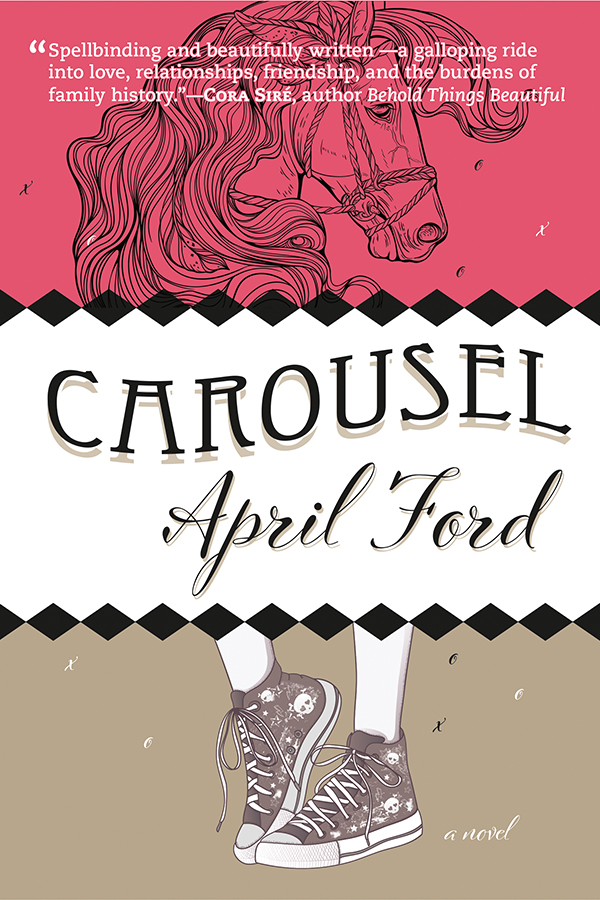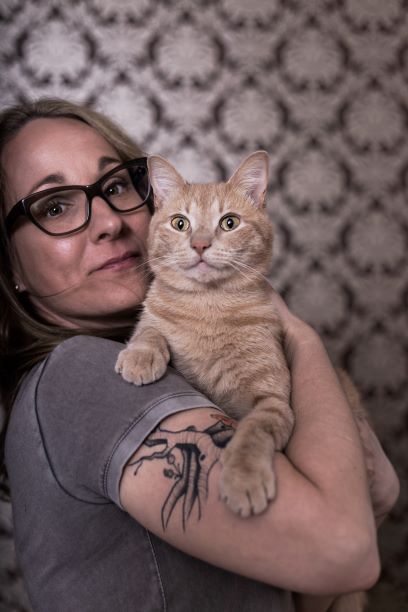Editor’s Note: This exchange is part of a series of brief interviews with emerging writers of recent or forthcoming books. If you enjoyed it, please visit other interviews in the I’ve Got Questions feature.
- What’s the title of your book? Fiction? Nonfiction? Poetry? Who is the publisher and what’s the publication date?
Carousel is my first published novel, and it debuted, thanks to the tireless love and labor of Inanna Publications, on May 8, 2020.
- In a couple of sentences, what’s the book about?
This is a great question for authors to revisit periodically—what is my book about after all this time has passed since the first line I wrote? Well, Carousel is a story about messy, sometimes beautiful and sometimes ugly, lives, and it’s about love that doesn’t behave the way we’re taught to believe it should. It’s also a motherlode of secrets.
- What’s the book’s genre (for fiction and nonfiction) or primary style (for poetry)?
Literary fiction.
- What’s the nicest thing anyone has said about the book so far?
Reader Brianne Lashley shared her review of Carousel on Goodreads recently, and everything about it makes me glow.
- What book or books is yours comparable to or a cross between? [Is your book like Moby Dick or maybe it’s more like Frankenstein meets Peter Pan?]
I used to enjoy saying if Richard Ford’s novel Canada and Jeffrey Eugenides’s novel Middlesex and Iris Murdoch’s novel The Black Prince had a baby, it would be my Carousel. I guess I still enjoy saying it, but with no one to hear me during this epoch of confinement and isolation. . . .
- Why this book? Why now?
Another great question—and challenging to answer considering how long it took me to write Carousel. When the novel debuted last Spring, almost a full decade had passed since I had written the first line. I can’t remember thinking beyond the excitement I felt about Margot’s (the protagonist) story, when I first started. I was filled with dreams of carousel horses and cotton candy and hermit crabs, and I let those dreams consume me.
Now, between Margot’s psychic confinement and her constant, guilty escapes to the amusement park, afternoons and soirées on outdoor coffeeshop and restobar terraces, and sunny, cross-border road trips, I think Carousel is rather fitting for the times and I would love it if y’all gave it a whirl (please)!
- Other than writing this book, what’s the best job you’ve ever had?
Writing, period. Even though I’ve yet to coast by on an annual income above the poverty line (seriously, the things I could do with a reliable living wage!), my present reality is the dream I had in my early 20s of becoming a writer. As a writer, I’ve gained so much more than validation from having my work published and applauded. I’ve taught college students, managed literary journals and a book publishing imprint, facilitated workshops for at-risk youth. All of this has grown from my passion for fiction, which amazes me.
When I left my first husband, some people said I was foolish. A few months after we separated, my husband’s father (my father-in-law for a decade) told me all I had achieved while I was with his son was because of his son. Some people couldn’t understand why I would leave a spouse whose salary enabled me to work part-time and spend the rest of my time writing fiction, whose parents owned a vacation home in Cape Cod, where we summered every year.
The thing of it was, I didn’t want to work part-time and write the rest of the time all of the time, but such was my life in the rural college town where we lived. As the adjunct instructor, aspiring novelist wife of a tenure-track professor, part of my “job” for six years had been to conduct myself publicly in ways that favored my husband’s eventual tenure. Once he was tenured, the focus on my career I had envisioned us sharing . . . it didn’t happen, and summering in Cape Cod (although the seafood was always excellent!) was not a reasonable or self-actualizing compromise.
There are plenty of writers who make good livings, so I can’t blame my weak earning power on my career choice entirely. There are also plenty of writers who make grand livings but whose jobs are unrewarding or make them miserable. I guess this is what I’ve always avoided (or cut short) on purpose, work that has the power to invalidate or suck the spirit out of me.
- What do you want readers to take away from the book?
That April Ford worked very long and very hard on this book! Really, though, I hope readers can find a character or two to connect with in the novel; I enjoyed developing the ample cast (Margot, Estelle, Katy, Bertrand, Marianne, Marguerite, Morgan, Étienne, Olivier, etc.). I also hope someone some day will say, “April! I see what you did there with Étienne’s hoodies. BRILL-I-ANT.”
- What food and/or music do you associate with the book?
Your questions are so timely! Just a few weeks ago, with no prompting, I decided to make a playlist for Carousel. Some of the songs are quoted in the novel, while others fueled me though the writing process. I’ve even found the perfect track for the opening sequence of the movie adaption—which, so far, is a thrilling development only in my mind.
Food-wise, it’s possible that cotton candy and wine were staples of my diet during my Carousel-writing years. . . .
- What book(s) are you reading currently?
I’m reading Joan Didion’s The Year of Magical Thinking, and it’s exactly what I need to be reading. Last August, my second husband ended his life, which made the rest of 2020 an excruciating blur, not counting the ongoing effects of the pandemic. Books that got me through the weeks immediately following Sam’s death were scholarly journals on mental illness and personality disorders, Thomas Joiner’s Why People Die by Suicide—the balm of science.
Then, early this year, a friend suggested Didion’s memoir on grief. I purchased the book but put it aside until a few weeks ago, when I got stuck in Carmen Maria Machado Her Body and Other Parties (a fascinating story collection, but not an ideal combination of themes for me right now). I’m but three chapters in, and already Didion’s memoir has shown me compassion (my feelings don’t mean I’m deranged) and given me permission to articulate grief in my own writing.
Learn more about April at her website.
Follow her on Facebook.
Some options for buying the book, or buy on Bookshop.


